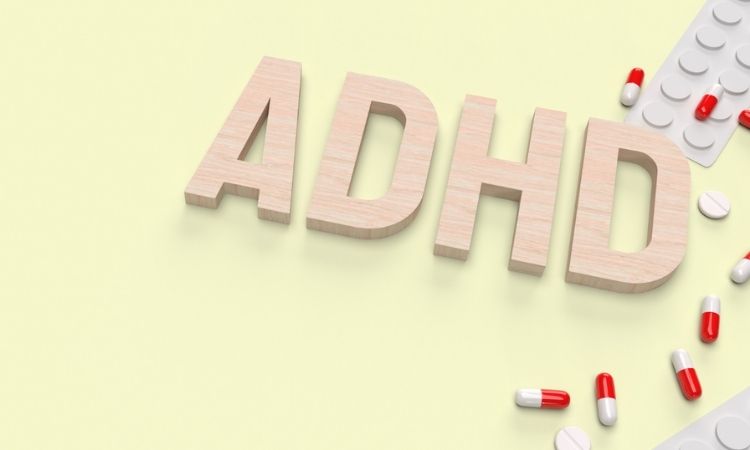
Attention deficit hyperactivity disorder (ADHD) is a condition characterized by a persistent pattern of hyperactivity, impulsiveness, or inattention that has a negative impact on a person’s functioning and development. Adult ADHD affects nearly 10 million adults in the US. An individual must have symptoms in more than one set to receive a diagnosis, like at home, work, and/or school. Symptoms include difficulty paying attention, waiting their turn, and finishing tasks.
They also usually take three to four times longer to complete a task. Other symptoms can include being easily distracted, forgetful, impulsive, fidgety, talking excessively, inability to stay seated, and interrupting or intruding on others. ADHD can cause several problems, including higher inability to hold a job, poor performance, attendance, attainment, and a higher risk of substance use disorders.
Adult ADHD and Substance Use Disorders
One of the common links between adult ADHD and substance use disorders is lower dopamine levels. This is one of the reasons why nearly half of all adults with untreated ADHD develop a substance use disorder. Studies show that about 30 percent of these individuals use substances to get high, and 70 percent use them to help improve their mood, alleviate the negative symptoms of ADHD, and sleep better. The National Institute of Health Current Psychiatry reports “The Complicated Relationship Between Attention-Deficit/Hyperactivity Disorder and Substance Use Disorders” says:
The neurobiological link between ADHD and SUD has shown evidence of structural brain abnormalities in individuals with ADHD. These abnormalities have included smaller volumes in the frontal cortex, cerebellum, and subcortical structures. Functional imaging studies have demonstrated that there may be deficits in anterior cingulate activation and the frontal subcortical systems in both individuals with ADHD and SUD. Speculated differences in the differential development of the frontal/executive/inhibitory and the limbic/reward systems in ADHD (and conduct disorder) may also account for the increased risk for SUD. Furthermore, dopamine systems and striatal involvement are similar for the two disorders. (NIH)
Twenty to forty percent of adults with ADHD have a history of substance abuse. In addition, they are three times more likely to develop a nicotine dependence, two times more likely to develop alcohol dependence, two times more likely to develop cocaine dependence, and one and a half times more likely to develop a marijuana addiction.
How is ADHD Treated When a Co-Occurring Substance Use Disorder Exists?
Treating mental health disorders when a co-occurring substance use disorder exists can be difficult. Several medications have been proven effective in treating mental health issues considered controlled substances and can be very addictive. This is the case when treating adult ADHD. Typically the first line of treatment for adult ADHD is prescription stimulant medications such as Adderall or Ritalin. Many mental health providers are extremely cautious and hesitant to prescribe these particular meds when they know the patient has a history of addiction. Some providers may choose to try non-addictive medications like Strattera (atomoxetine), Wellbutrin (bupropion), or certain tricyclic antidepressants first. If these medications prove ineffective, some providers may then choose to try a stimulant medication with close monitoring and precaution. Of course, there is concern that an addict may abuse a stimulant medication if prescribed one; however, no research supports this. On the contrary, studies show that using the first line of treatment for adult ADHD, stimulant medication, reduces the risks of substance use disorders.
Psychotherapy and Education to Treat Adult ADHD and Substance Use Disorders
Along with medication, psychotherapy and education are very important when treating both disorders. This allows the individual to learn how to manage the symptoms of ADHD. Some of the problems that are addressed in psychotherapy and education include:
- Poor organization
- Poor time management
- Poor problem-solving skills
- Impulsiveness
- Self-esteem issues
- Social concerns
- Poor coping skills
- Interpersonal issues
Cognitive-Behavioral Therapy has also been found to be effective in treating both disorders. CBT provides the structure to learn and focus on thoughts, emotions, and behaviors. Of course, when it comes to treating any co-occurring disorders, treatment should be individualized and treated on a case-by-case basis. However, evaluating the patient’s needs and doing is important. It may take several different treatment changes to get the most effective plan for the patient.
Start Treatment For Addiction at Riverwalk Recovery Center
Riverwalk Recovery Center understands how hard the recovery process can be. Recovery is a journey and not a destination. Our programs help people overcome addiction and mental health issues by helping them change their lifestyles. We have a team of compassionate and understanding professionals who are invested in your success. If you or someone you love is struggling with drug or alcohol addiction, give us a call and let our team help you.
